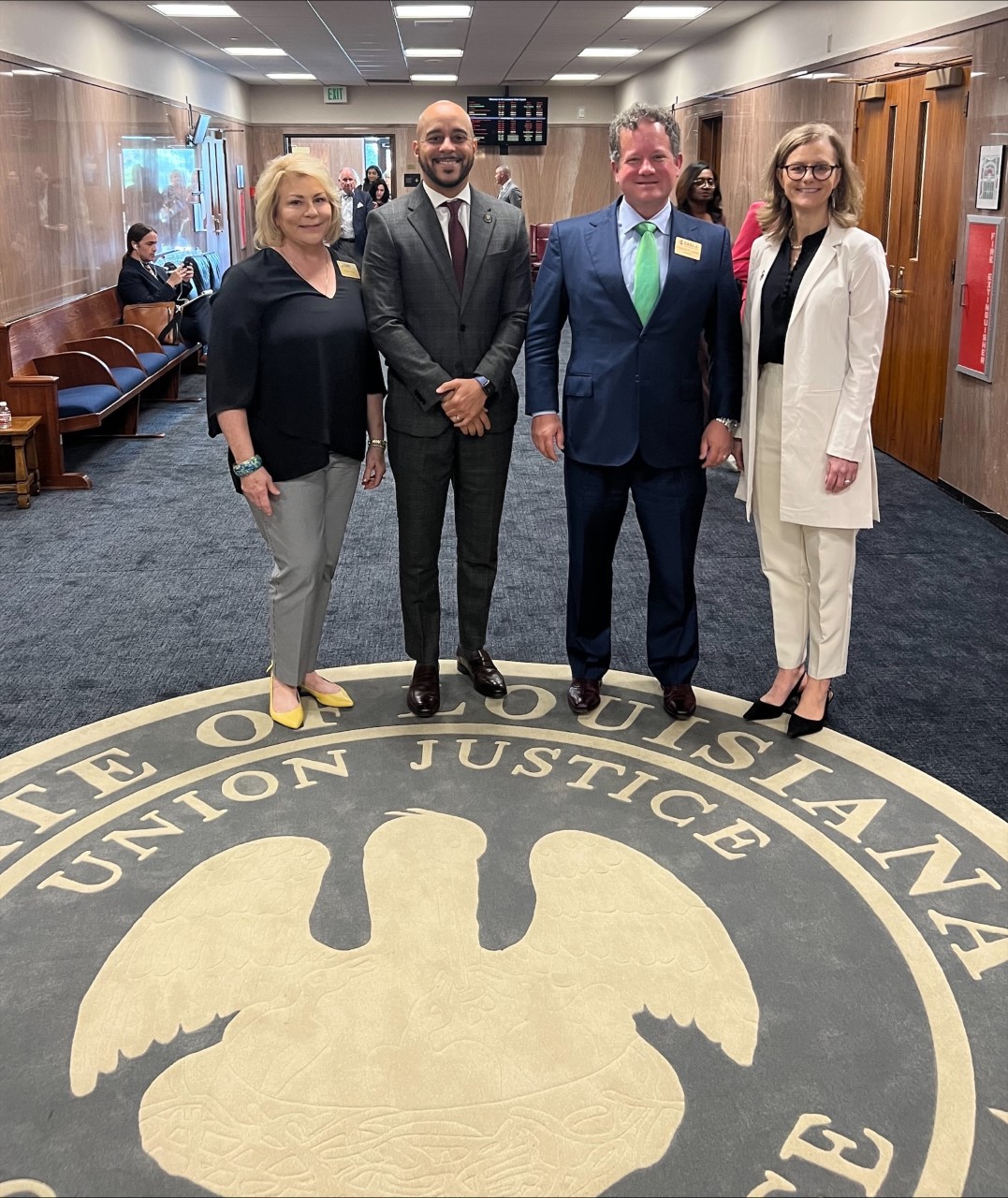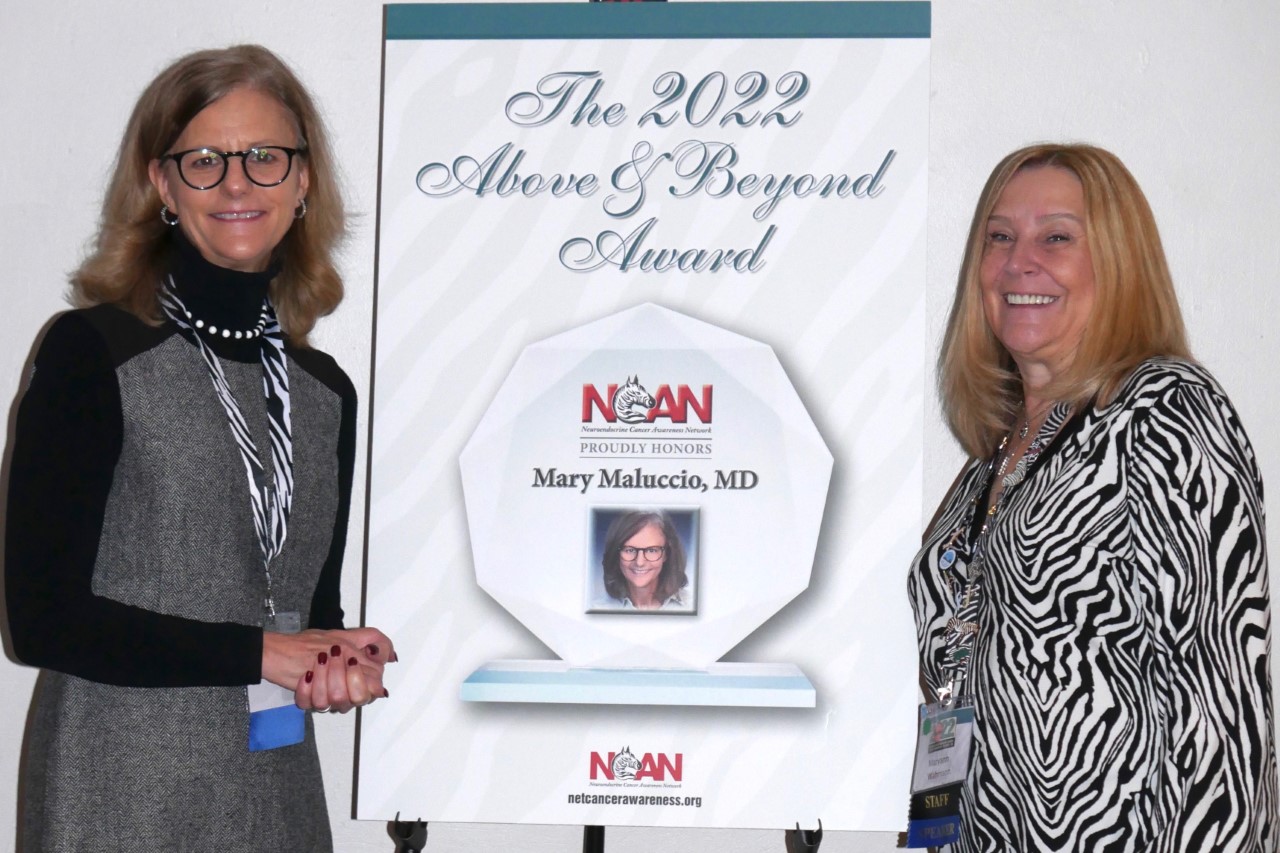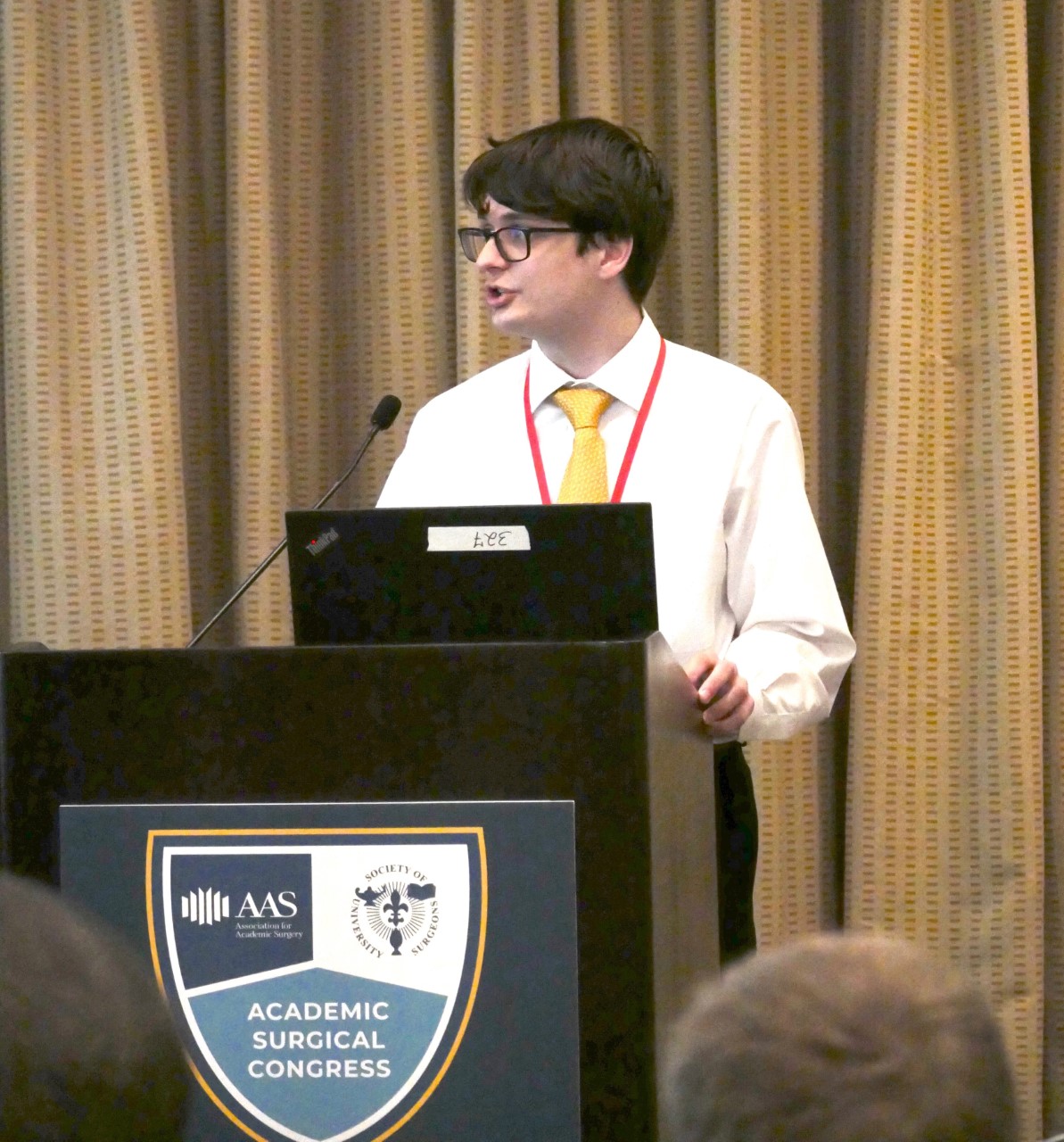Dr. Mary Maluccio Testifies Before the State Labor Committee
 LSU Neuroendocrine Cancer Program Director, Dr. Mary Maluccio, recently testified
before the State Labor committee with Senator Duplessis in favor of SB-200 to protect
employee rights to cancer screening. The bill is now headed to the Senate floor for
a vote.
LSU Neuroendocrine Cancer Program Director, Dr. Mary Maluccio, recently testified
before the State Labor committee with Senator Duplessis in favor of SB-200 to protect
employee rights to cancer screening. The bill is now headed to the Senate floor for
a vote.
photo, left to right: Karen Stall, Senator Royce Duplessis, Chad Landry, Mary Maluccio - Chad Landry and Karen Stall represent the Cancer Advocacy Group of Louisiana (CAGLA)
LSUHSC-NO’s neuroendocrine cancer program is the largest rare cancer program in the country; something many people in New Orleans likely do not know. With a patient catchment area that includes five of the most vulnerable southern states (Arkansas, Oklahoma, Louisiana, Mississippi, and Alabama), the faculty who represent the program work on several fronts to bring exemplary clinical care, cutting edge treatment options, and awareness and education of rare cancers to medical professionals and patients throughout Louisiana.
 Dr. Maluccio, was also recently recognized by the Neuroendocrine Cancer Awareness
Network (NCAN) with the Going Beyond award for her efforts to advocate for neuroendocrine
patients throughout the South. She has made patient advocacy this year’s programmatic
focus and is grateful for organizations like CAGLA who are helping raise awareness
of the unique challenges faced by patients who need subspecialty cancer care in Louisiana.
Dr. Maluccio, was also recently recognized by the Neuroendocrine Cancer Awareness
Network (NCAN) with the Going Beyond award for her efforts to advocate for neuroendocrine
patients throughout the South. She has made patient advocacy this year’s programmatic
focus and is grateful for organizations like CAGLA who are helping raise awareness
of the unique challenges faced by patients who need subspecialty cancer care in Louisiana.
Her vision for the program includes building a robust clinical trial portfolio for patients in the Southern United States since novel treatments are often better options for patients with unusual cancers. Delivering on this promise, Dr. Maluccio is set to open the fourth clinical trial under the umbrella of LCMC/East Jefferson Hospital. One of these cutting-edge treatments includes a radioisotope that targets neuroendocrine cancer cells specifically (AlphaMedix) and an excellent option for patients with metastatic disease. The most recent addition (Crinetics) would help patients transition from an injection to an oral form of treatment to control neuroendocrine symptoms. If this trial is successful, it would be a gamechanger for patients who live in rural areas of the United States or more than 50 miles from an infusion center.
 Within the program infrastructure is an integrated translational research laboratory
and clinical database. Research faculty (N. James Skill, PhD), surgical resident (Jace
Landry), and medical students working in the lab (Michael Maurer, pictured left) have recently presented data at several professional meetings this year including
the Neuroendocrine Tumor Research Foundation national conference (Boston), Society
of Surgical Oncology symposium (Boston) and the American Surgical Congress meeting
(Houston).
Within the program infrastructure is an integrated translational research laboratory
and clinical database. Research faculty (N. James Skill, PhD), surgical resident (Jace
Landry), and medical students working in the lab (Michael Maurer, pictured left) have recently presented data at several professional meetings this year including
the Neuroendocrine Tumor Research Foundation national conference (Boston), Society
of Surgical Oncology symposium (Boston) and the American Surgical Congress meeting
(Houston).
